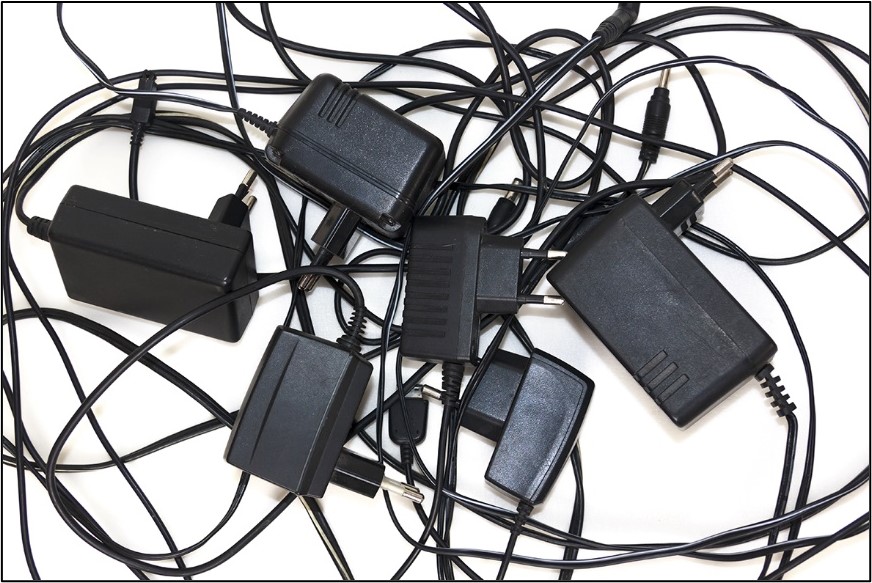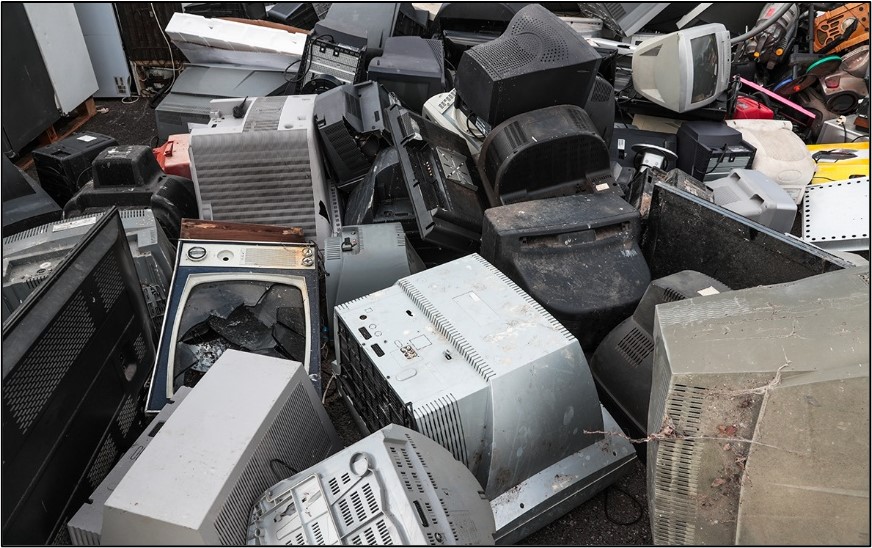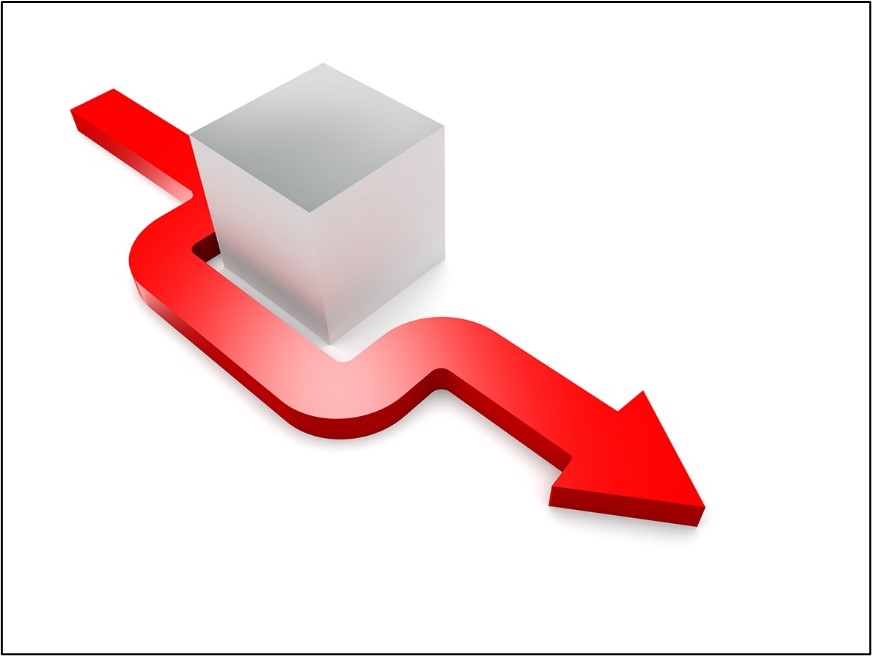Lead story
One charger to rule them all!
We welcome the EC’s legislative proposal for a mandatory common charger for mobile phones and other digital devices such as tablets, digital cameras, notebooks. We also welcome the EC having the power to update the legal provisions to take into account future technical innovation. See https://bit.ly/3zTtRyW. See our factsheet at https://bit.ly/2NyJf1h.

For all too long, we and other consumer organisations have been calling on manufacturers to provide a common external power supply for mobile phones and other devices. The present plethora of chargers – both within brands and among brands - represents unnecessary costs to the consumer in their direct (or implied) purchase, and to the environment in the extraction of the raw materials for their construction and in their disposal.
We believe consumers should have the choice to buy or not buy a new charger each time a new device is bought (so-called “unbundling opt-in”). Consumers should be informed about the possibility of using a charger they already own at the point/moment of sale.
Charging speed is a key factor and fragmentation is already happening, as several solutions - open and proprietary - are present on the market. We are pleased to see that the legislation intends to address this point too.
Unfortunately, the legislation does not cover wireless charging and we believe it important to extend its scope to wireless charging systems, noting that many smartphones can already use appliances compliant with the Qi standard. Again, it is important to avoid fragmentation.
Horizontal
Roadmap for the EC Standardisation Strategy
In early August, ANEC submitted its response to the EC consultation on the Roadmap for the Standardisation Strategy (https://bit.ly/3B6epBj). The EC has taken the initiative to address the challenges facing the European Standardisation System, its context within international standardisation, and to ensure its readiness to meet the standardisation needs of the green and digital transformations.

The key messages of our response are:
- consumer spending constituted 54% of EU GDP before the pandemic and hence the needs of consumers must be central to EU policies, with the ESS effective in responding to these needs.
- we support creation of a high-level group to build and maintain a new dialogue between the EC and the stakeholders of European standardisation. This should look to avoid more fundamental difficulties (such as citation of Harmonised Standards) in the implementation of legislation or policy.
- we trust the High-Level Task Force of the EC and the ESOs will come forward quickly with effective and lasting solutions that allow the timely citation of Harmonised Standards. It is vital for all stakeholders in the ESS that industry maintains its confidence in European standardisation and does not look to other solutions.
- we agree with the EC interpretations of the Amstar and James Elliott rulings. We trust a further consequence will be that the EC ensures a similar implementation of other provisions of the Regulation, such as those of Article 5 on deepening inclusiveness.
- we do not believe a revision of Regulation (EU) 1025/2012 – the Standardisation Regulation - is needed. Instead its implementation should be improved, especially in the obligations on Member States to provide the political and financial frameworks needed at national level to ensure the participation of all stakeholders in European standardisation.
- nevertheless, the convergence of technologies, and its consequences for the complexity of standardised solutions, is likely to mean that the national delegation principle will need to continue to be complemented by the “Annex III organisations” in safeguarding the participation of under-represented stakeholders.
- the EC should ensure the AUWP reflects its collective standardisation needs, and that it looks to use the provisions of Regulation (EU) 1025/2012 when it identifies the need for a “technical specification”.
- we share the concern that only 2% of standards address services when services represent some 70% of EU GDP. We believe the EC needs to place at least the same emphasis on B2C standards as B2B. We also renew our call for a legislative proposal on the safety of services. Without such a legal framework, the implementation of European Standards on services will remain frustrated by a landscape of fragmented national legislation.
- we advocate timely standardisation over speedy standardisation. The core values of a European Standard (EN) should not be risked just to reduce development times even further. This is essential where a core objective of an EN is to ensure the safety of a product or service, especially the safety of consumers.
- Standardisation Requests (SReqs) should not delegate political decisions (e.g. on safety limits) to the ESOs. An SReq should also offer sufficient detail for it to be able to be used by Market Surveillance Authorities in the absence of a Harmonised Standard.
- turning to the strategic autonomy of Europe, ANEC believes an SReq should state whether a Harmonised Standard can be offered to ISO/IEC for development at the international level, or is to be developed within the ESS in order to ensure European values or ethics. Regardless of the origin of an EN, ANEC considers that the ESOs must be responsible for ensuring ENs reflect (and are developed in line with) the provisions of Regulation (EU) 1025/2012.
- we support education and training on European standardisation: the students of today are the practitioners of tomorrow.
Guidance on use conditions in standards
ANEC welcomes the new guidance document, ‘Basic elements for a common understanding of use conditions in standards’, approved by the CEN-CENELEC Technical Boards in August. See the CEN BOSS (https://bit.ly/2WqvKWq) or CENELEC BOSS (https://bit.ly/39Kr00K).

Prepared by CEN-CLC/BTWG 15 ‘Use conditions in standards', with the participation of ANEC, the guidance aims to provide a common understanding of terms that describe the ‘use conditions’ of products mentioned in various standards and regulation, as these differ across industries (e.g. intended use, other expected use, reasonably foreseeable (mis)use, misuse, and abuse). The development of this common understanding should lead to a more consistent approach to addressing safety requirements in product standards, and hence more consistent (and improved) consumer protection.
Accessibility
EN 81-70:2021/prA1 answers ANEC appeal
We are delighted EN 81-70:2021/prA1 ‘Safety rules for the construction and installation of lifts - Particular applications for passenger and goods passenger lift - Part 70: Accessibility to lifts for persons including persons with disability’ met the approval criteria of the CEN Enquiry ballot. The amendment answers the ANEC appeal of 2017, critical of the requirement for the luminance contrast of lift buttons. With the support of the disability movement, we considered it essential that standardisation is shown to be inclusive of consumers of all ages and abilities.

The Enquiry started at the end of July and closed on 16 September 2021. CEN TC 10 ‘Lifts, escalators and moving walks’ will now review the comments submitted during the ballot and decide whether the amendment can be adopted immediately or needs to be submitted to the Formal Vote stage.
Nevertheless, the positive result of the Enquiry ballot represents a landmark for both ANEC and the disability movement. We must thank our expert on the accessibility of lifts, Isabella Steffan, for her work in helping to improve the accessibility requirements of the standard and in solving the ANEC appeal.
Domestic Appliances & Services
Sunbeds
Further to a discussion on sunbeds at the June meeting of the EC Low Voltage Directive (LVD) Working Party, the Commission asked for suggestions to improve the standard on sunbeds, as well as views on the best legislative framework to ensure the safety of sunbeds. ANEC has replied through a short position paper (https://bit.ly/3oiOjY8) and would welcome the debate on sunbeds being brought to a higher level.

From the perspective of electrical product safety requirements (LVD), ANEC supported the Enquiry on prEN IEC 60335-2-27 ‘Household and similar electrical appliances - Safety - Part 2-27: Particular requirements for appliances for skin exposure to ultraviolet and infrared radiation’ in February 2021. However, we mentioned that we do not have sufficient familiarity with UV radiation aspects to be able to judge whether the limits in the draft comply with the classification and maximum irradiances decided by the EC.
In the paper, we agree with the Association of European Cancer Leagues (ECL) on the need for warnings, but disagree with the European Sunlight Association (ESA) which proposes to compare sunbed limits with exposure to (natural) sunlight.
Finally, we stress that, if sunbeds are to be kept on the market, enforcement is key. Recent market surveillance in the UK on product related aspects (lamps) and service-related aspects (tanning salons) showed that many sunbeds were not compliant with the standard. We would welcome a new joint market surveillance action in this respect.
Sustainability
Sustainability in the construction sector
To mark the occasion of the Enquiry ballot on two consumer-relevant standards from CEN TC 350 ‘Sustainability of construction works’, we published a commentary at the end of August, ‘Sustainability in the construction sector - a consumer perspective on relevant standards and initiatives’ (https://bit.ly/39PNBcd).

In the paper, we present a review of :
- prEN 17672 ‘Sustainability of construction works - Environmental product declarations - Horizontal rules for business-to-consumer communication’
- prEN 17680 ‘Sustainability of construction works - Evaluation of the potential for sustainable refurbishment of buildings’
In providing a Not-Favourable Opinion to CEN on prEN 17672 during the Enquiry, we used our commentary to confirm our longstanding position on the limits of a B2C communication based on LCAs and Environmental Performance Declarations (EPDs). We also offer reflections and thoughts on the recent work in CEN TC 350 on the sustainable refurbishment of buildings.
Ecodesign
Making more sustainable products the new normal
At the start of September, ANEC and BEUC published a position paper with recommendations on the Sustainable Products Policy Initiative (SPI) (https://bit.ly/3ikvMXt).
The SPI was announced as a key initiative of the Circular Economy Action Plan (CEAP), with the aim of making products “fit for a climate neutral, resource efficient and circular economy” and to “reduce waste”. As part of this initiative, the EC is thinking to extend the scope of the Ecodesign Directive to cover more products, beyond energy-related ones. They also intend to adopt complementary legislative proposals to establish sustainability principles and other mechanisms to regulate sustainability-related aspects of products.

Following intensive consultations with ANEC and BEUC members in the past months, the new position paper explains our recommendations on how to achieve the CEAP’s ambitions and calls on policy makers to introduce rules that make products more sustainable by design.
We think the Ecodesign Directive is an instrument well-suited to get there, but its essential role in reducing the environmental burden of products should be strengthened.
Its scope must be extended to non-energy related products, including textiles and furniture, and focus beyond energy efficiency. In addition, its governance must be modernised:
- to enable swift decision making that keeps pace with technological improvement.
- to have better coordination between Ecodesign and the EU Ecolabel when developing criteria for common products (with the Ecolabel turning into a benchmark).
- self-regulation should no longer be an option under the Ecodesign framework.
In addition to measures addressing product design, we also ask the EC to consider ways to use guarantees to help achieve more durable products.
We also suggest strengthening consumer rights in the area of more sustainable business models, with the risks and benefits of the models needing to be better understood. Increased circularity should not result in more financial or procedural burdens for consumers, especially those who are less affluent.
The SPU proposal is expected to be published by the EC on 14 December 2021.
Anti-circumvention (ANTICCS)
As a member of the Advisory Board of the ANTICCS project, ANEC followed with interest its development and the resulting recommendations. The project’s final conference was held on 15 September with the objective of defining and assessing "circumvention" in relation to EU Ecodesign and Energy labelling legislation and their harmonised standards.
The report from ANTICCS (https://bit.ly/2ZIKBNa) makes recommendations to policymakers and standards organisations based on its research.

In summary, the recommendations are that:
- the definition of circumvention is expanded. At present, the term covers only integrated software that recognises when an appliance is being tested, and then automatically optimises the configuration of the appliance to result in more favourable measured performance. Other circumvention possibilities that should be prohibited include: 1) pre-set or manual alteration of the product, affecting performance and/or resource consumption during test; 2) pre-set alteration of the performance within a short period after putting the product into service; 3) the misuse of manufacturers’ instructions for laboratories that lead to better results in testing, 4) possible modes or functions of products that reduce the energy consumption during testing but which would be rarely used (or even not-applicable to real life).
- there is a fast-track revision or amendment of legislation after identification of loopholes and other weaknesses that might facilitate circumvention.
- a definition of modified measurement methods is mandated, able to indicate the presence of circumvention and made available to market surveillance authorities. At the moment, circumvention cannot be detected using the measurement methods in the harmonised standards for products.
Digital Society
Cybersecurity and the RED
In August, ANEC submitted its comments on the EC draft delegated act on cybersecurity-related aspects of the Radio Equipment Directive (RED) (https://bit.ly/3ihHPF2).
We welcome the draft act and recognise it addresses the issues we brought to the attention of the EC and its TCAM Expert Group in December 2016 and November 2017 about unsecure smart toys and smart watches for children.
We stress the date of applicability of the delegated Regulation (article 3) should be as soon as possible and that further delays are not acceptable. Furthermore, we want to be assured on the inclusion of other consumer smart products (such as smart locks/bells/lightbulbs).
In particular, we welcome the inclusion of ‘childcare’ equipment as more and more products aimed at children are now connected to the internet or another communications network. However, we think equipment designed or intended not exclusively for childcare should also be covered in article 1.2 (a/b).
ANEC also welcomes the conclusions of the analysis of overlaps with other EU legislation, such as that regulating the market access of Medical Devices (article 2). We had expressed doubts on the possible exclusion of Smart Meters and 5G, as we do not believe the applicable legislation contains similar provisions in terms of market access. We are satisfied they are included in the scope of the delegated Regulation.

Services
Making tourism in Europe more resilient
ANEC participated in a targeted consultation carried out by EC DG GROW based on the Staff Working Document, “Scenarios towards co-creation of transition pathway for tourism for a more resilient, innovative and sustainable ecosystem” (https://bit.ly/2Y2GQ4P).
Our contribution addressed consumer expectations for health-safe and accessible services in the recovery from the COVID-19 pandemic. We made recommendations on accommodation, transport, activities and events, and health tourism. We also noted the role that standards can play in supporting the realisation of a resilient and sustainable tourism sector for Europe.

News from ANEC member countries
DENMARK
New tests on chemicals in consumer products
Titanium dioxide can cause health problems if eaten or inhaled. Nevertheless, the compound is widespread in cosmetic and personal care products, including products that we "eat" or inhale during use. The Danish Consumer Council THINK Chemicals has published the report, ‘Titanium dioxide in personal care products can be problematic’ (https://bit.ly/2WlO1UE).
THINK Chemicals has also examined chemicals present in three consumer product groups:
- School bags: https://bit.ly/3zWUZgt
- Phthalates in plastic products: https://bit.ly/3m8OnH7
- Cosmetics bought outside the EU: https://bit.ly/2WltkYW

| List of meetings 2021 |
For comments or if you wish to write an article for the ANEC Newsletter, please contact: Marijana ANTAROROVA (This email address is being protected from spambots. You need JavaScript enabled to view it.).


